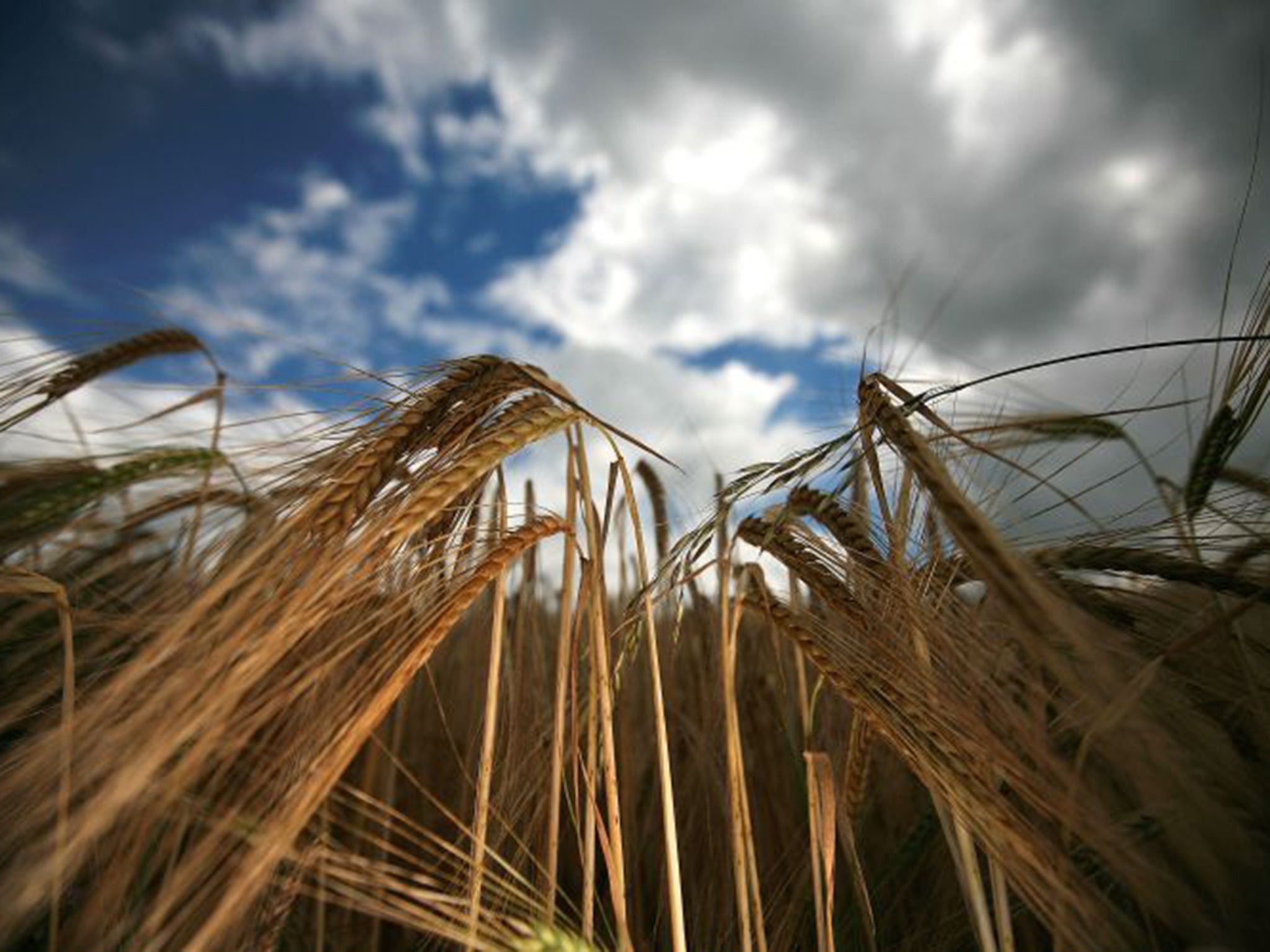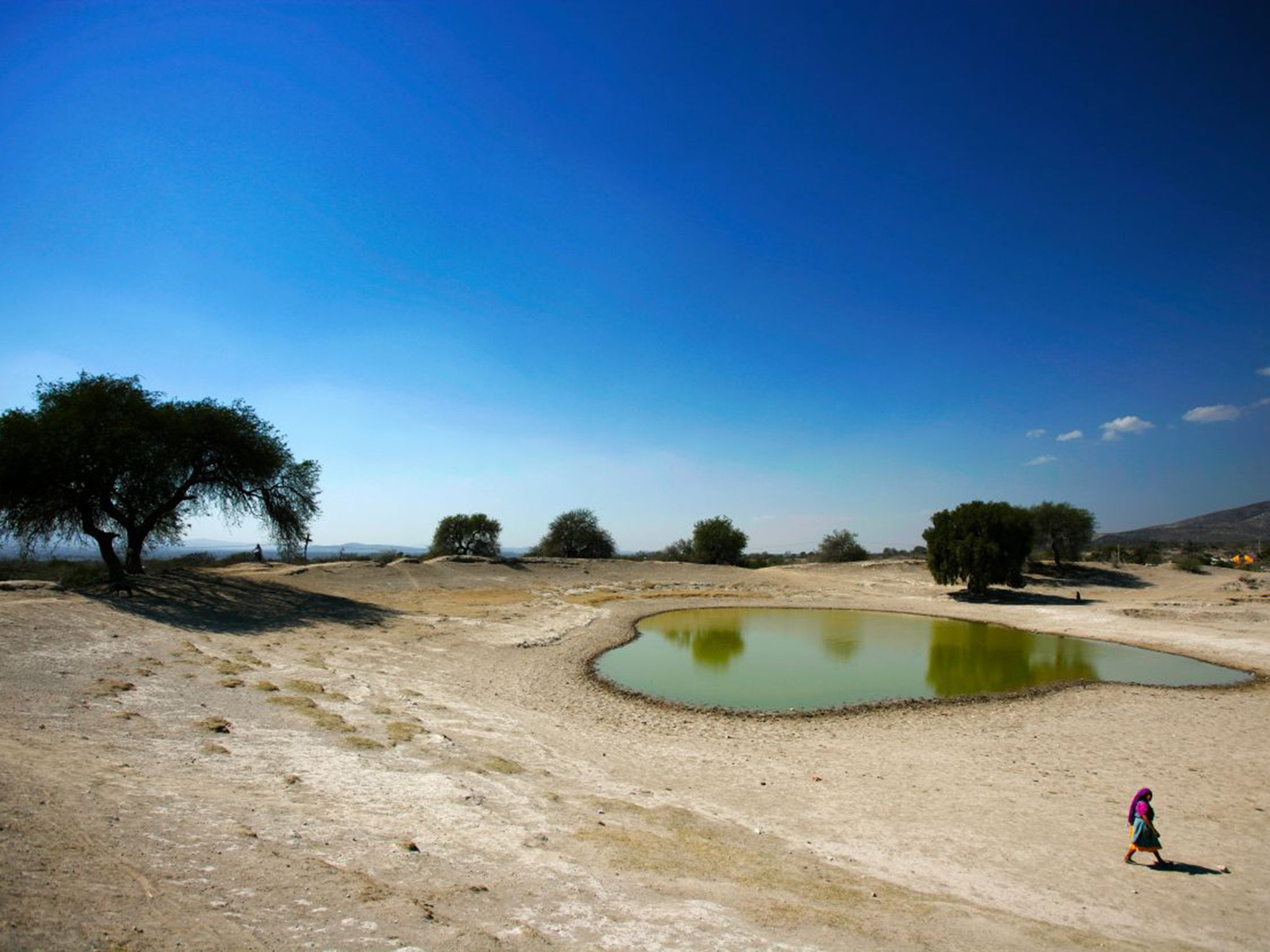World entering era of global food insecurity with malnutrition and obesity side by side within countries, says leading food expert
Exclusive: A British team is to examine how factors such as climate change will distort global diets and health

Your support helps us to tell the story
From reproductive rights to climate change to Big Tech, The Independent is on the ground when the story is developing. Whether it's investigating the financials of Elon Musk's pro-Trump PAC or producing our latest documentary, 'The A Word', which shines a light on the American women fighting for reproductive rights, we know how important it is to parse out the facts from the messaging.
At such a critical moment in US history, we need reporters on the ground. Your donation allows us to keep sending journalists to speak to both sides of the story.
The Independent is trusted by Americans across the entire political spectrum. And unlike many other quality news outlets, we choose not to lock Americans out of our reporting and analysis with paywalls. We believe quality journalism should be available to everyone, paid for by those who can afford it.
Your support makes all the difference.The world is entering an era of global food insecurity which is already leading to the “double burden” of both obesity and malnutrition occurring side by side within countries and even within the same families, a leading food expert has warned.
It will become increasingly common to see obese parents in some developing countries raising underweight and stunted children because high-calorie food is cheaper and more readily available than the nutritious food needed for healthy growth, said Alan Dangour of the London School of Hygiene and Tropical Medicine.
“We are certainly looking at a period of increased instability in the supply of food, and also the diversity and types of food that are available are going to change,” said Dr Dangour, who is to lead a major study into global food insecurity and its impact on health.
“A result of this is called the ‘double burden’ of malnutrition,” he added. “Under-nutrition causes starvation and stunting in children, whereas obesity and over-weight in adults is another form of malnutrition, caused by eating the wrong type of food.

“The double burden exists in countries, or indeed in households, where you get a stunted child and an overweight mother. And that happens in many countries around the world as a result of the wrong diets being eaten [by adults] and the wrong diets being given to children,” he said.
“It’s not the fault of the mother, it’s the fault of the food system where the mother cannot afford to buy nutritious food such as dairy, eggs and fruit and is predominantly feeding her child a diet that is rich in calories, such as oil and cereal-based carbohydrates,” Dr Dangour said. “That diet will not be sufficient for the child to grow. It will stop the child from being hungry but it will also stop the child from growing properly,” he said.
The Wellcome Trust, Britain’s largest research charity, is this week to announce that it will fund a £420,000 pilot project, led by Dr Dangour, into the health effects of food insecurity in an age of rapid climate change and a fast-expanding human population that is expected to grow from the present level of 6.8 billion to more than 9 billion by mid-century.
The researchers will analyse the effects of environmental “stressors” – including factors such as drought, soil degradation and the decline of pollinating insects – on the food supplies of Britain, Mexico and Ethiopia. The three specimen countries were selected because their agricultural systems are very different from one another.
“We know that at the end of this century it’s going to be very difficult to grow crops in certain parts of the world because of increasing temperatures,” Dr Dangour said. “In other parts of the world there is going to be increasing productivity because warmer temperatures will mean longer growing seasons.”
He said no single prediction on food insecurity could tell the whole story because climate change will affect different crops differently in different parts of the world: “For the UK, we could imagine a scenario in which changing food availability globally leads to changes in the availability of and the access to that food in the UK.
“For example, cereals may not be affected but fruit and vegetables, critical to a healthy diet, may become much more expensive. As people are responsive to food prices, it may lead to a reduction in consumption of those foods in the poorer population, which may lead to increased health inequality in the UK.”
In the past, policy-makers and planners have concentrated on producing enough food based on calorie content, often to the detriment of more nutritious food, such as pulses and fruit, that are required for healthy growth. This has helped to fuel an epidemic of obesity and diabetes, Dr Dangour explained.
“We see a lot of countries where the mother is obese and the child is undernourished and that’s because the environment in which they are living is giving them enough calories but not enough nutrition to grow healthily,” he said.

“It’s happened over the past 10 years or so and it’s hugely important. It means policy-making is an enormous challenge, because you think: ‘It’s about just increasing the amount of food we produce.’ Well, no: you need to think about the types of food you are producing and about the access to those foods.
“As food availability globally changes, we could see both of those things happening. We could see under-nutrition and we are already seeing enormous increases in chronic diseases such as obesity and diabetes,” he added.
Join our commenting forum
Join thought-provoking conversations, follow other Independent readers and see their replies
Comments